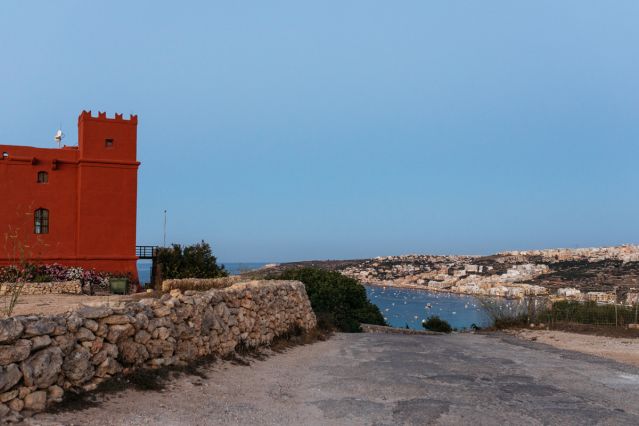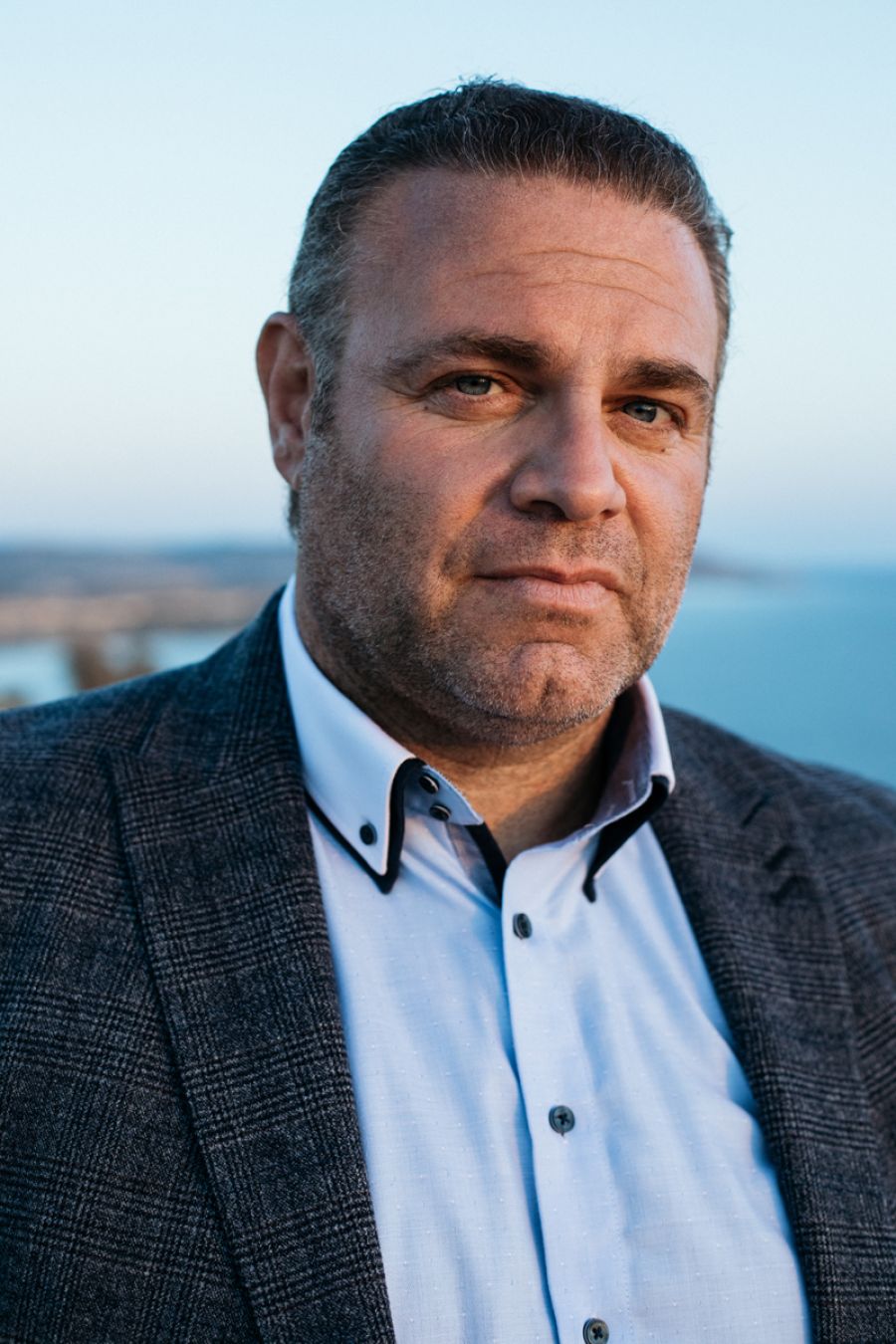Joseph Calleja: A place of serenity for my soul: Malta - Deutsche Oper Berlin
Joseph Calleja: A place of serenity for my soul: Malta
The tenor Joseph Calleja returns to the Deutsche Oper Berlin with Ponchielli’s LA GIOCONDA. Here he gives us a brief guided tour of his home town: Mellieha on the island of Malta
The place that is balm for my spirit is a small town in the north of Malta called Mellieħa. I was born here and I try to visit a few times every year as a way of replenishing my batteries. I’ve now been stuck here since March. It’s been 25 years since I spent such a long continuous period here – and I’m loving every minute of it. Every day I set off with my dogs, heading for the Red Tower, and we’re out walking for hours. I’ve got two Alsatians – a bitch named Roma and her son, Mars – and Jupiter, an Italian mastiff. I named the two boy dogs after Roman gods. The Tower was built in the 17th century as a lookout above the bay for knights of the Order of Saint John. Malta was frequently targeted by pirates and troops of the Ottoman Empire. I like looking out across the sea to the islands of Comino and Gozo in the distance.
Malta is an island bursting with colour and fragrance. As a child in the winter I used to wander through fields of golden daffodils. In spring and summer there was the aromatic thyme. The sea sparkling a bright blue and turquoise and me scaling cliffs the colour of sand. There are red and orange sunsets. Obviously, I’m a little biased, but I really do think Mellieħa is one of the prettiest spots on earth. Malta is thick with history. The signs of human habitation go back 7,000 years. Even Mellieħa has traces of inhabitants stretching back 3,000 years. Prehistoric people climbed the cliffs and built megalithic temples in the Neolithic Period, the most ancient temples on the planet. Mellieħa was occupied by the Romans, Arabs and Byzantines. Then came the Order of Saint John, the Knights Hospitaller, in the Middle Ages and the British around 1800. We did Maltese history at school and I got it fed to me by my parents, too. But I wasn’t fascinated by it as a child, learning about a few chunks of masonry. I was into other stuff: swimming, snorkelling, building sand castles. In our teens we hung around campfires, barbecuing, star gazing. Then my first kiss on the beach. Suffice to say, I didn’t really come to appreciate the history of my home country until I was a grown-up.

Malta’s strategic position made it a key military and commercial location down the millennia. The island is kind of like an unsinkable aircraft carrier in the middle of the Mediterranean Sea. It lies at the crossing point of north-south and east-west trade routes. For years refugees have been landing on Malta, escaping across the Mediterranean from Africa to Europe. Malta is a tiny island, just 27 kilometres long and 316 square kilometres in area. That’s around a third of the size of Berlin! Malta has 400,000 inhabitants. 10,000 refugees live here and hundreds more arrive each year. We’re the smallest island state in Europe. We need help from our neighbours. We can’t cope on our own. Malta and Italy are often left alone to deal with the problem. Not that that is ever a reason to leave people to drown in the Mediterranean. People are dying every day: women, children, old people. If these guys need help, then there’s no other way: we have to help.
For thousands of years peoples and cultures have been leaving their mark on Malta, which is a classic example of the melting pot. I had a DNA test done once and it turns out I have Italian, Greek, Portuguese, Spanish, French and Jewish blood. I’d like to tell all racists: Have a test done and then you’ll see that we’re all connected. If people are presented with how similar we all are to each other, I don’t think racism would have a chance. Covid-19 is one small indicator of that. The virus doesn’t discriminate. It doesn’t care how old you are or what your religion is or where you come from. We can all catch it.
I can’t wait to tread the boards again. In September I’m doing a concertante turn as Enzo Grimaldo in Ponchielli’s LA GIOCONDA. His story is set in Venice, one of the jewels of our planet. Venice is like my home town in the sense that it’s on the shores of the Mediterranean. That fact alone connects me to Enzo. He’s a sea captain, concealing his true identity from the city council, which also functions as Venice’s Supreme Court. A triangular relationship develops between him, the married Laura and Gioconda, a street singer. He’s a romantic guy, fighting for justice – and he has a boat, just like me!

I’ve been out on the water a lot over recent months. I’ve been swimming, spending a lot of time with my family, going for walks with the dogs. But still, not being able to get up in front of an audience and sing is a kind of torture! And it’s sheer bliss getting the chance to sing again after such a long enforced break.





